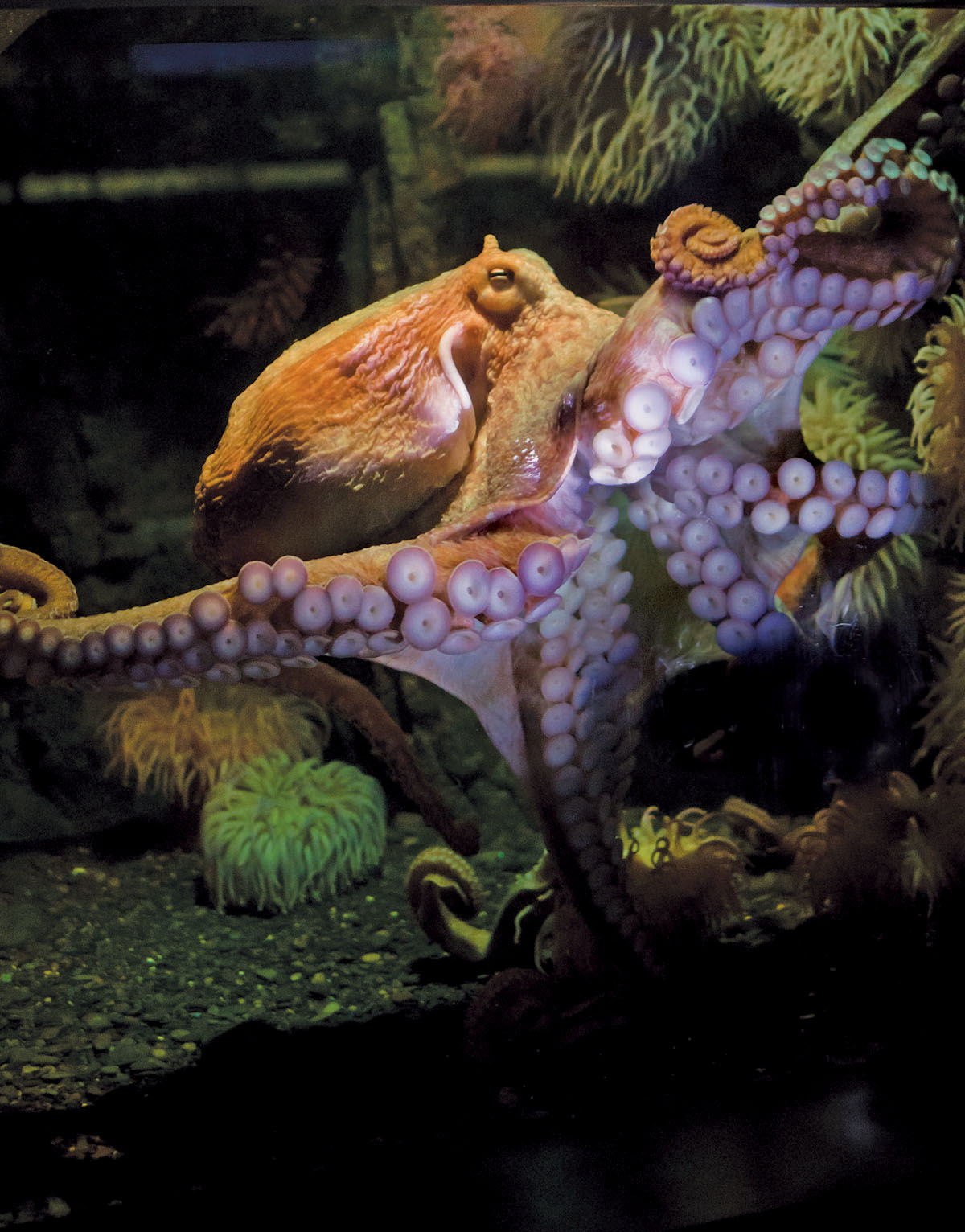‘Tentacles Take Hold’ at the New England Aquarium

Photo by S. Cheng
What has three hearts, blue blood, and tastes with its skin? Hint: it’s headed to the New England Aquarium.
Two giant Pacific octopuses will be at the New England Aquarium starting April 15 for a new exhibit, “Tentacles Take Hold.” Just in time for April school vacation week, these new creatures will make the aquarium their home alongside other endearingly strange tentacled animals.
According to media relations director Tony LaCasse, the New England Aquarium has almost always had an octopus, but the aquarium has been renovating for months to create a larger space modeled after the habitat of the Olympic Coast, one of the main regions where these octopus species are found.
LaCasse says that octopuses have always been “immensely popular,” and knowing that, the aquarium now aims to make the habitat larger and give people more context about the animals.
These ocean dwellers are strikingly otherworldly with their elongated tentacles, slithering movements, and bulbous heads emerging from their squishy, amorphous bodies.
Giant Pacific octopuses are the largest species, typically weighing in at 40 to 50 pounds. Their arms, if stretched out, span 10 to 15 feet. And the octopuses are more than just strange creatures—scientists have also concluded they are surprisingly intelligent. They have been known to complete puzzles, navigate mazes, and open jars. To hide from predators, they can blend into their surroundings by quickly changing their color and shape.
Aquarium staff have even witnessed the giant Pacific octopuses breaking out of their tanks and into others.
According to LaCasse, years ago, staff at the aquarium noticed that a fish tank seemed to be losing fish every day. One morning, a staff biologist was surprised to find the octopus from a separate, nearby tank, not only out of its own tank, but perched above the fish tank scoping out food. Mystery solved.
One visit to the aquarium’s octopus even inspired nonfiction author Sy Montgomery’s The Soul of an Octopus, an intriguing look into the world of octopuses, nominated for the 2015 National Book Award.

Photo by S. Cheng
Now, octopuses are not the only tentacled critter of the Pacific Northwest that will appear in “Tentacles Take Hold”—alien cuttlefish, sea jellies, and sea anemones will also be featured.
Cuttlefish are eight-armed, two-tentacled animals that flutter through the water. Their curvy, w-shaped eyes allow them to see both in front and behind them—practically like eyes in the back of their head. Similar to its cousin, the octopus, the cuttlefish is an uncanny transformer—it can even camouflage itself to look like a checkerboard.
Aquarium patrons will also find sea anemones, brightly colored flower-like creatures with flowing tentacles. Don’t let that distract you though—their tentacles serve as dangerous stingers for prey.
And majestic sea jellies, more commonly called jellyfish, have saucer-like bodies that gracefully float, giving the mystifying illusion that they are effortlessly and weightlessly drifting. With a mass of stringy appendages, these are the poster child of tentacled animals. Flower hat, lion’s mane, and moon jellies will also make an appearance.
So, watch out, school vacationers—the New England Aquarium’s tentacles are ready to take hold of you.


